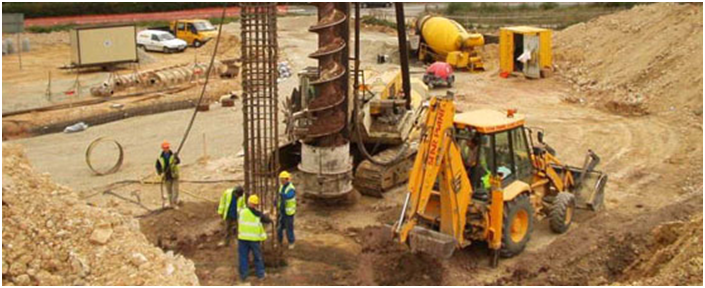Technical Study
Geotechnical investigations are performed to obtain information on the physical properties of soil earthworks and foundations for proposed structures and for repair of distress to earthworks and structures caused by subsurface conditions. Additionally, geotechnical investigations are also used to measure the thermal resistivity of soils or backfill materials required for underground transmission lines, oil and gas pipelines, radioactive waste disposal, and solar thermal storage facilities.A geotechnical investigation will include surface exploration and subsurface exploration of a site.

Sometimes, geophysical methods are used to obtain data about sites. Subsurface exploration usually involves soil sampling and laboratory tests of the soil samples retrieved.Surface exploration can include geologic mapping, geophysical methods, and photogrammetry, or it can be as simple as a geotechnical professional walking around on the site to observe the physical conditions at the site.Methods of observing the soils below the surface, obtaining samples, and determining physical properties of the soils and rocks include test pits, trenching, boring, and in situ tests.
To learn more about our Technical Studies domain or enquire about collaborationconnect with us at technicalstudies@planninginsights.in